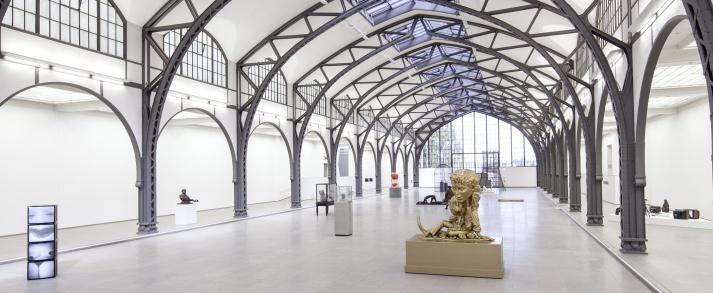Body Pressure. Sculpture since the 1960s
Sat, 25 May 2013 10:00
Body Pressure. Sculpture since the 1960s
This exhibition examines the many different approaches to the human figure in contemporary sculpture through a selection of works from the collections of the Nationalgalerie. Free of any exhibition architecture, the expansive Historic Hall is transformed into a light-flooded "sculpture garden."
Sculpture, which since antiquity has largely served the representation of the human figure, has changed more dramatically since the 1960s than in any other period in its long history of development. In its materials, subject matter, and involvement of the viewer, sculpture becomes more multi-facetted than ever before. The materiality of works changes dramatically beginning in the 1960s; in addition to marble and bronze artists use plastic, ceramics, wax, rubber, and even their own excrement. Figurative sculpture no longer symbolizes the claims of public representation, demonstrations of power, religion, and mythology. It no longer serves as monument. In the context of feminist critique and the process-based art of the 1970s, sculpture expands into the dimension of the performative. The body itself becomes a sculptural object. Often fragmented and abstract, the figurative sculpture of the present always negotiates our contemporary social and cultural context as well.
Curators: Henriette Huldisch, Lisa Marei Schmidt
